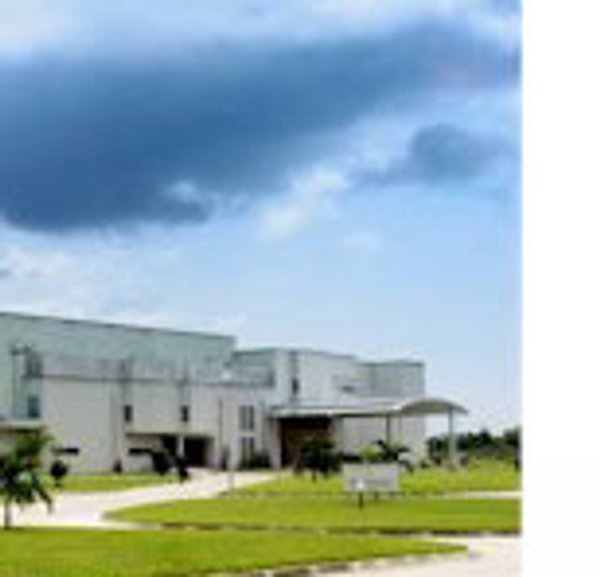These initiatives try to respond to real needs in the country or environment and the promoters sustain them with full financial and managerial autonomy. The Prelature only takes care of the Christianization of these social initiatives, by providing doctrinal orientation as well as priestly attention to those who freely request it.
In the words of the founder of Opus Dei, “Student residences, conference centres, the University of Navarre, training centres for skilled and unskilled workers, technical institutes, schools, secretarial colleges, home management schools, etc. These centres are undoubtedly sources which project the Christian view of life. Managed by laymen, directed as professional activities by lay citizens who are the same as their colleagues at work, and open to people of all classes and conditions, these have made many sectors of society appreciate the need of offering a Christian solution to the problems which arise in the exercise of their profession or job.” (Conversations, no. 18)

Opus Dei exercises distinct types of responsibilities in these institutions. In the so-called “corporate works of apostolate”, Opus Dei makes a moral guarantee of the Christian orientation of the activities carried out there, such as education and research. In other cases, it offers spiritual help to a greater or lesser extent, without the prelature officially taking on the moral guarantee of the formation given there. Such spiritual help can take on different formats such as priestly attention, teaching of classes of religion, etc.
Below are some of the projects:
The Lagos Business School (www.lbs.edu.ng)
The Lagos Business School (LBS) was initiated by the Educational Co-operation Society (ECS), a not-for-profit and non-governmental organization registered in Nigeria in 1973. As the School developed into a sizeable organization, the Educational Co-operation Society transferred this project to the African Development Foundation, ADF, a not-for-profit Trust registered in Nigeria in 1994. Lagos Business School aims at fostering the education of competent and socially responsible managers to lead sustained national and African development. It does so by providing broad business education of the highest comparable international standards using high quality staff and facilities. The school lays special emphasis on the practice of business ethics at personal and corporate levels. An appropriate number of classroom sessions is devoted to the examination and discussion of this subject within the different programmes curricula.
In January 2002 the Federal Government of Nigeria approved the application of LBS to be raised to the status of a private university, and in February 2002, it granted the license to Pan-African University to operate as a private university. From that day, the Lagos Business School became the first school of Pan-African University, which in 2013 changed its name to Pan-Atlantic University (www.pau.edu.ng).
The Institute for Industrial Technology (IIT) (www.iit.edu.ng)
The Institute for Industrial Technology (IIT) is a social initiative and a technical training program conceived as a Centennial "birthday present" for Saint Josemaría Escrivá, the founder of Opus Dei. The Institute for Industrial Technology (IIT) is a social project aimed at imparting technical skills and knowledge with ethical values to young out-of-school-youths and also to adult workers. The fees are subsidized with help from mostly local establishments in order that some candidates from families with limited resources can be trained and thus improve thier social conditions. IIT is open to people from all tribes and religions. It's aim is to provide high-level education so that all its graduates become highly qualified.
The Lagoon Secondary School, Lekki, Lagos (www.lagoonschool.com).
The Lagoon School is secondary school for girls located at Lekki; a project of Nigerian Association for Women's Advancement, a non-for-profit, non-governmental, organization registered in Nigeria. It forms a partnership with the parents to give an all round education to the students based on the dignity of the human person, integrity, leadership qualities and academic excellence.
Whitesands School, Lekki, Lagos (www.whitesands.org.ng)
-A secondary school for boys located at Lekki, that is open to students of all backgrounds, without religious, cultural or ethnic discrimination. It was opened on October 2, 2000. The School follows the educational model of successful parents–promoted educational institutions that have been in existence in many parts of the world for over four decades.
Wavecrest Monotechnic College of Hospitality Management (www.wavecrest.edu.ng)

- Wavecrest College of Catering & Hospitality Management is the premier Monotechnic in Nigeria offering education and training in the field of hospitality & tourism. It is a project of Women’s Board, Educational Cooperation Society; a Nigerian non-governmental not- for- profit organization created in 1972 to contribute to women’s development in both rural and urban settings.
Wavecrest College is a higher institution accredited by the National Board for Technical Education (NBTE), Kaduna, Nigeria and is one of the Institutions listed in the JAMB/PCE brochure that is published annually. Its mission is to train women to be competent professionals able to meet the challenges of the fast developing world of hospitality; and to create an awareness of the impact of hospitality services on the quality of life of the individual, the family and ultimately on the development of the society. It is located at 75 Adisa Bashua Street, Surulere, Lagos.
